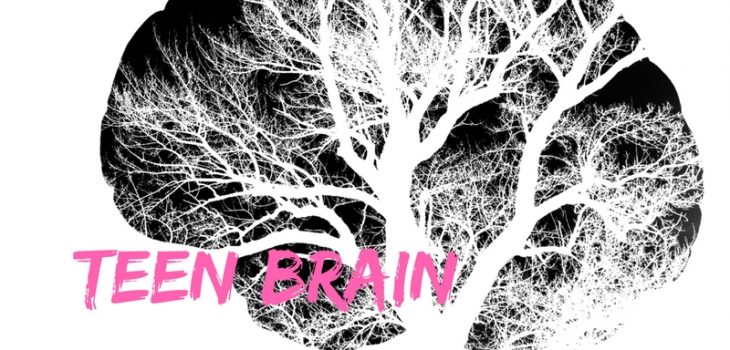
The teenage years are difficult to navigate and understand regardless of whether you are looking out through your own eyes as a teenager, or parenting, educating, or counseling one. Simple and close relationships once had during childhood may now look very different through the teenage lens. And, when working with adolescents or teenagers, “just getting through it” can be really hard sometimes. As a therapist, we try to remind families about the reality of “teen brain.” While they are often displaying behavior that appears adult-like, their brains are still developing, so special care should be taken to understand them when the goal is effective communication.
There are so many challenges to go through during the teen years! Adolescence brings independence. They are going places alone for the first time and having to be aware of safety. Teens are also at the age where they are making their first financial decisions. They may have started to accumulate their own money and are making their own choices on how to spend it. And, they are probably developing new social circles, having likely been to one or two schools at least by this point. Physically, puberty at any stage can bring discomfort, embarrassment and start self-esteem issues for teens.
Needless to say, inside a teen brain there’s a lot going on.
The part that adults need to remember is that during all these outward and inward changes, teens are also developing in a major, and rapid, way. The most notable, and what we’ll look at here, is a phenomenon called “teen brain” which affects cognitive communication during this delicate time.
So, how can you communicate with your teen and, simultaneously, how can you avoid miscommunication with your teen? Maintaining the lines of communication during the sometimes tumultuous teenage years is incredibly important.
Teen Brain Development
Much research has been conducted on teenage brain development. Using MRI’s, scientists have been led to discover that the teenage brain is not simply an “undeveloped” adult brain, but that it is actually very unique in structure and chemical makeup. Sometimes we believe teens are just small adults, even without meaning to. And so we have this idea and perception that teens should think like adults, behave like adults, and respond like adults.
In fact, their prefrontal cortex, which controls executive functioning skills such as impulse control, planning and predicting, using foresight, and problem solving, doesn’t fully mature (for many) until the age of 25. Further, the limbic system, which drives emotions, gets stronger during the teen years. So, heightened emotional response combined with a disadvantage at impulse control? And, worldwide, kids are reaching puberty at younger and younger ages, leaving the teen body in a bit of turmoil. Yes, being a teen is hard just physically, let alone emotionally.
Teen Brain: An Official Diagnosis
“Teen brain” is a real thing. And, it goes without stating that we can get the idea of why scientists decided to leave it at that. It encompasses the emotionality and lack of impulse control that we associate with teens. Now, as the prefrontal cortex is developing, among other actions taking place is the rapid creation of pathways in the brain and the creation of myelin which helps the brain’s synapses to communicate better.
Therefore, “teen brain” is a complex, developing and rapidly changing “condition” that when inspected, allows for greater awareness for communication with a teen. For example, there may be things that parents or teachers are asking of a teen, but because of all of the rapid processing, they physically can’t understand or respond as an adult would whose brain has left the “teen brain” stage. It’s neurologically impossible for some teens to make certain decisions or understand certain concepts until they have physically matured and aged.

Communication with Teens
Communicating with a teenager involves a huge awareness of where they are at physically and emotionally. Simply reminding ourselves as professionals and parents that their brains are going through intense change and “newness” is a huge step in the right direction. It gives us space and patience to understand why sometimes a teen’s reaction to something or their words just doesn’t “make sense” to us.
Here are some tips on communicating with teens:
Come from where they are at in their development.
Remember the physical changes that are happening in a teen brain. Try to put yourself back in time to when you were that age. Think specifically on a moment when you were at a loss of what to do. Thinking pragmatically is something teens are learning right now. Be aware and accepting of their unique position in life right now.
Fitting in is really important at this stage.
Oftentimes when children become adolescents and then teenager, parents start to become less and less of the most important thing in their lives. When you don’t check in with your teen and ask what plans they have (birthday party next weekend, mall with girlfriends, etc.) and make them for them, you are taking away the precious time when they are needing social acceptance. Give them this time. Schedule family time too, but although it may feel bizarre to ask your teen what they are doing, it’s important and begins the path of mutual respect, something you’ll definitely want to maintain. Not being able to go to an event can seem insignificant to an adult, but it can be everything to a teen. Try compromising.
Understand how teens communicate with other teens.
This has changed tremendously since the advent of the Internet and smartphones. Teens talk to each other in texts, pictures, graphics, emojis and other graphical means over a plentitude of social networks. Teens are all about the phone. And, phones can isolate your teen, feed into bad behavior or become an addiction. Frustrated, you may want to take away their phone at times, but a better way is to accept that this is the new reality and work with it, rather than against it. Teachers are even coming around to the use of cell phones by integrating apps into lessons instead of banning them from class. It’s a phenomenon for sure, but one that must be attributed to a generation gap. And, for the best results in communication, we must go with the times and again, compromise.
Sometimes digital miscommunication is the core of the issue, not something bigger.
Along with communication, there must be a discussion on miscommunication. This can happen ever more easily with texts and digital communication. The tone is often lost and sarcasm or humor can come across very wrong. Talking to your teen about their lives and offering help when miscommunication has happened is key. Also, take a deep breath and remember this on your own when a text from your teen comes across wrong. Remember, they are still developing.
Conclusion
All in all, the best way to communicate with your teen is to listen to them. Don’t blow them off. Don’t disregard their seemingly small dilemmas. In all reality, “it’s all small stuff” but to your teen, it is huge. And, as we know, adults over-worry and stress just as much as teens can. In fact, teens have even more emotions happening. So, empathize and see how you can help.
And, don’t expect a quick fix. As a parent it’s difficult to see your child struggling, through physical change and watching some of their first “adult emotions.” Parents want the quick fix and they don’t want them to be in the wrong friend group either. Yet, be patient. As much as you want to be a superhero, you are not, and it can come across as controlling, not as protective. This kind of parent “problem fixing” can even cause your teen to limit communication with you because of it. Know that sometimes their problems can’t be “fixed” and they might just need you to listen.
Resources
Scientific American 25, 92 – 97 (2016) The Amazing Teen Brain
Published online: 28 April 2016 | doi:10.1038/scientificamericankids0616-92
www.nature.com/scientificamerican/journal/v25/n2s/full/scientificamericankids0616-92.html
Secrets of the Teenage Brain: Research-Based Strategies for Reaching and Teaching Today’s Adolescents, Feinstein, Sheryl G., ISBN-13: 978-1412962674, 2nd edition.
American Academy of Child & Adolescent Psychology: Teen Brain: Behavior, Problem Solving, and Decision Making, No. 95; September 2016
3 COMMENTS
[…] to adjust to all of this, especially as you’re simultaneously adjusting to mental changes (teen brain, yes, it’s a thing!), new schools, new friends and so much more. Growing up, all teens have difficulty adjusting to the […]
[…] extreme depression, anxiety, body image issues, self-esteem, bullying, and fear for the future. Teen brains are still being developed and their cerebral cortex is handling a lot of processing. Sometimes a teen can look like an adult, […]
[…] and young adults are at a disadvantage when it comes to mental health because their brains are literally still developing. In fact, “the brain reaches its adult size in boys around age 11 and in girls around age 14,” […]
Comments are closed.